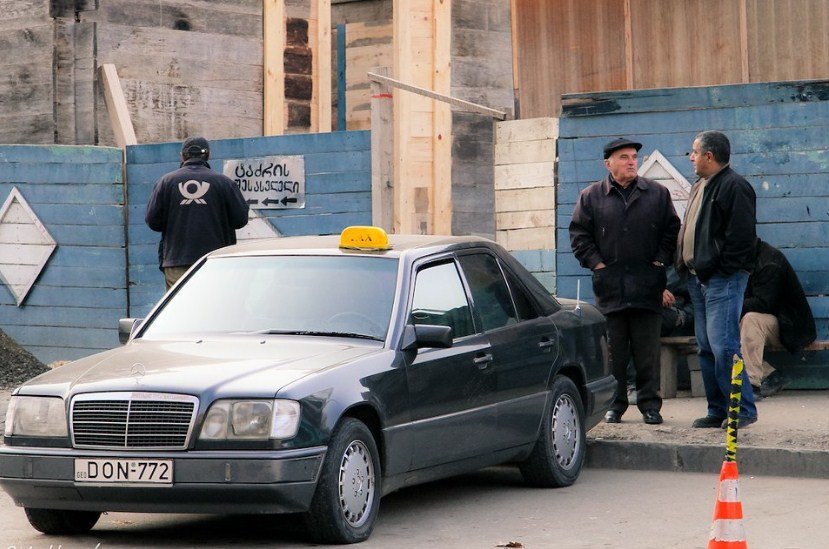The city of Tbilisi has announced a reduction in the prices for category A taxi licenses, which are required for white-colored taxis operating in the city. The move is aimed at easing the financial burden on taxi drivers and encouraging them to activate their permits before the deadline of April 1, 2024.
What are category A taxi licenses?
Category A taxi licenses are a type of permit that allows taxi drivers to operate white-colored vehicles with a special sign – “Taxi Tbilisi”. These taxis are subject to certain standards and regulations, such as having a meter, a receipt printer, a GPS device, and a camera. Category A taxis are also eligible for preferential parking and traffic lanes in the city.
Category A taxi licenses were introduced in 2019 as part of the city’s reform of the taxi sector, which aimed to improve the quality and safety of taxi services, as well as to reduce air pollution and traffic congestion. However, the implementation of the reform has faced some challenges and delays, mainly due to the COVID-19 pandemic and the resistance from some taxi drivers.

How much are the new prices?
According to the city’s official website, the prices for category A taxi license purchase, sale and rental service on the Internet platform have been reduced. The selling price of a taxi license is now a maximum of 8000 GEL, down from the previous 10,000 GEL. The rental price is now a maximum of 100 GEL per month, down from the previous 150 GEL. The purchase price is also subject to a 10% discount if the payment is made in full.
The city has also announced that it will provide financial assistance to taxi drivers who want to purchase or rent a category A taxi license, but do not have enough funds. The city will cover 50% of the purchase or rental price, up to a maximum of 4000 GEL for purchase and 50 GEL per month for rental. The financial assistance will be available until March 31, 2024.
Why is the deadline important?
The city has set a deadline of April 1, 2024 for the activation of new permits. This means that all those who hold a category A taxi license have the opportunity to activate the permit and link it to a specific car. After the deadline, the city will revoke the permits that have not been activated and redistribute them to other taxi drivers.
The city has urged taxi drivers to take advantage of the reduced prices and the financial assistance, and to activate their permits as soon as possible. The city has also warned that after the deadline, it will intensify the inspection and enforcement of the taxi regulations, and that taxi drivers who operate without a valid permit will face fines and penalties.
How do taxi drivers and customers react?
The reduction in the prices for category A taxi licenses has been welcomed by some taxi drivers, who see it as a relief and an incentive to comply with the reform. One taxi driver, who asked to remain anonymous, said that he was planning to buy a category A taxi license with the help of the city’s financial assistance. He said that he wanted to improve his service and attract more customers, especially tourists and foreigners.
However, some taxi drivers are still skeptical and reluctant to join the category A system. They cite various reasons, such as the high cost of maintaining a white-colored car, the lack of parking spaces, the competition from ride-sharing platforms, and the preference of some customers for cheaper and informal taxis. Another taxi driver, who also asked to remain anonymous, said that he was not interested in buying or renting a category A taxi license, and that he would rather continue to operate as a category B taxi, which does not require a permit, but has fewer privileges and more restrictions.
As for the customers, the opinions are also mixed. Some customers appreciate the quality and convenience of category A taxis, and are willing to pay a higher fare for them. They say that category A taxis are more comfortable, reliable, and safe, and that they provide a better image of the city. Other customers, however, prefer to use category B taxis or ride-sharing platforms, which are cheaper and more flexible. They say that category A taxis are too expensive, too scarce, and too regulated, and that they do not offer much difference from other options.
